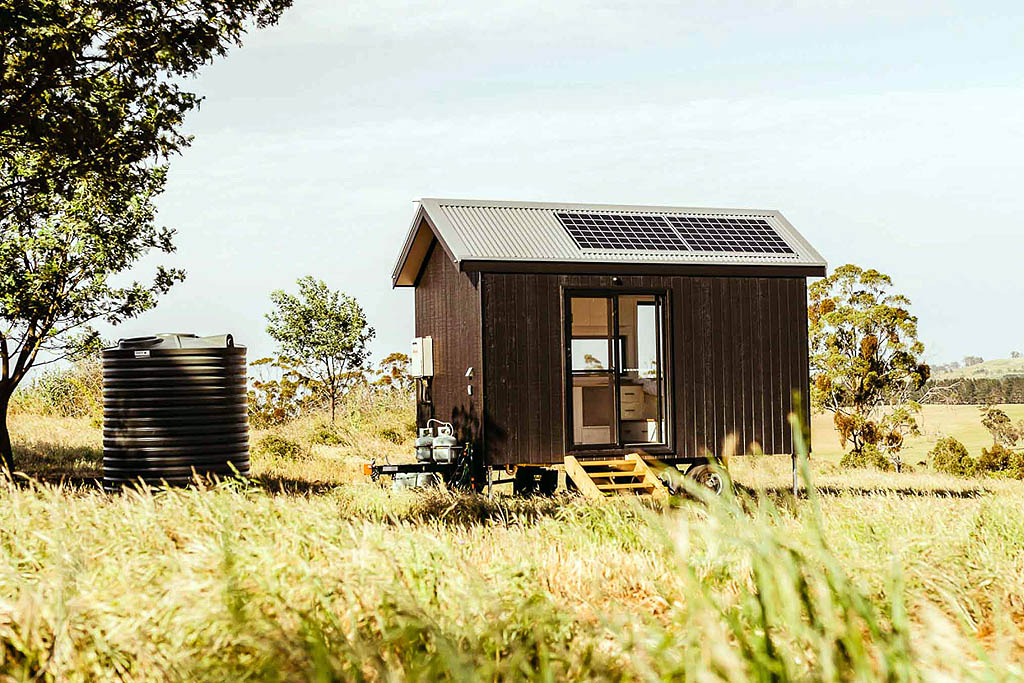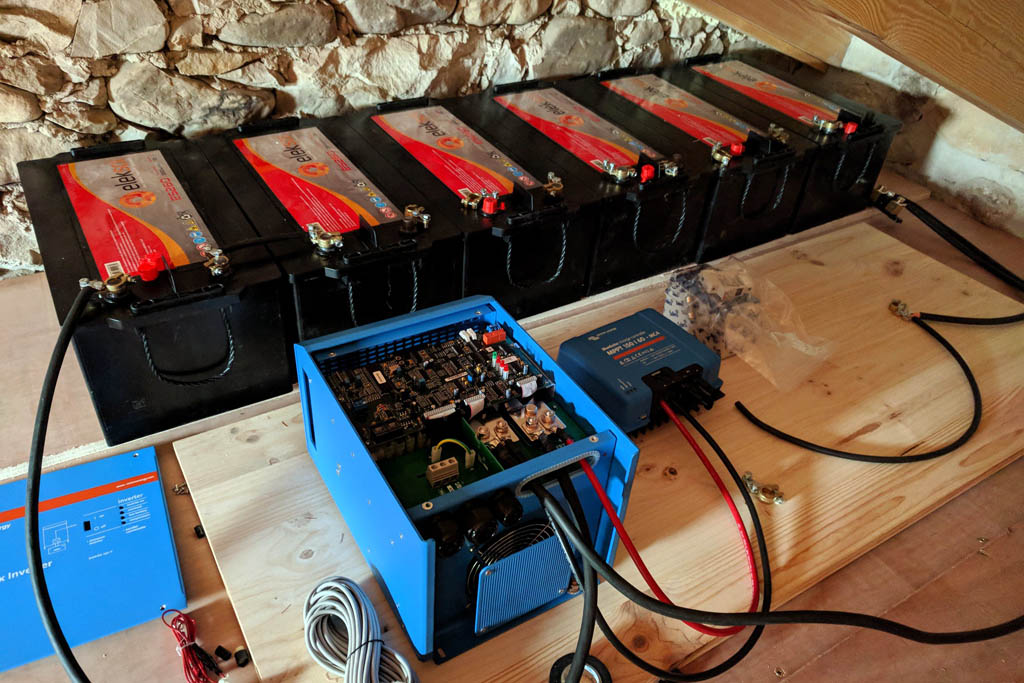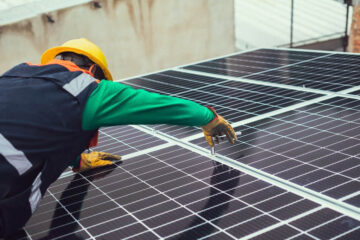Securing a dependable off-grid power supply for your home is crucial for peace of mind and comfort. When living off the grid, power outages can be more than just an inconvenience – they can pose a serious threat to your safety and well-being.
As you look for ways to ensure a reliable off-grid power supply, it’s important to consider a few critical factors. From determining the right power source to implementing effective backup solutions, taking the right steps can make a significant difference in the stability and safety of your power supply.
Assessing Your Power Needs
Before you can ensure a reliable off-grid power supply for your home, you need to assess your power needs. This involves evaluating your energy consumption and prioritizing essential appliances.
Evaluating Energy Consumption
When evaluating your energy consumption, you need to take a close look at your current energy usage. This includes analyzing your electricity bills, tracking your daily energy usage, and identifying any patterns or trends.
By doing this, you can gain insight into your peak energy usage times and which appliances or devices are consuming the most power. This information will be crucial in determining the size and type of off-grid power system you will need to install.
Prioritizing Essential Appliances
Once you have a clear understanding of your energy consumption, you can start prioritizing essential appliances. Identify which appliances are critical for your daily life and which ones you can live without if necessary. This will help you determine which appliances need to be powered by your off-grid system, ensuring that you have reliable power for the most important devices and equipment in your home.
Off-Grid Power Options
Assuming you are considering reliable off-grid power supply options for your home, it’s essential to explore various possibilities. You may be wondering, What is the best way to power an off-the-grid home? The most common off-grid power solutions include solar power systems, wind turbines, micro-hydro power, and diesel or gas generators.
Solar Power Systems
Solar power systems are a popular choice for off-grid power supply. They utilize solar panels to capture sunlight and convert it into electricity. These systems are low maintenance, have a long lifespan, and can provide reliable power as long as there is sunlight available.

Wind Turbines
Wind turbines harness the power of the wind to generate electricity. They are an efficient option, especially in areas with consistent wind patterns. However, they can be expensive to install and require regular maintenance.
Micro-Hydro Power
Micro-hydro power systems utilize the flow of water to generate electricity. If you have a water source on your property, such as a stream or river, this can be a sustainable and reliable option for off-grid power supply.
Diesel or Gas Generators
While not as environmentally friendly as renewable energy options, diesel or gas generators are a tried and tested method of off-grid power supply. They can provide a consistent power source regardless of the weather or time of day. However, they require fuel and regular maintenance.
System Components and Setup
Keep in mind that the key to a reliable off-grid power supply for your home lies in the components and setup of your system. For a more in-depth look at this, you may want to check out this article on 7 Tips for a More Dependable Off-Grid System. It’s essential to choose the right components and set them up properly to ensure a stable and consistent power supply for your off-grid home.
Batteries and Energy Storage
When it comes to off-grid power supply, the batteries and energy storage system are crucial. Choosing the right batteries is essential to ensure reliability and longevity. It’s important to consider factors such as capacity, voltage, and cycle life.

Additionally, proper maintenance and monitoring of your batteries are crucial to their performance and lifespan. Make sure to invest in high-quality batteries and set up a robust energy storage system to meet the needs of your home.
Inverters and Charge Controllers
The inverters and charge controllers play a vital role in managing and converting the power generated by your off-grid system. Investing in high-quality inverters and charge controllers is crucial to ensure the efficiency and stability of your off-grid power supply.
It’s important to consider factors such as power rating, efficiency, and compatibility with your system. Proper installation and regular maintenance of these components are essential to keep your off-grid system running smoothly.
Backup Systems and Redundancies
Even with a well-designed off-grid power system, unexpected issues can arise. That’s why it’s important to have backup systems and redundancies in place to ensure a reliable power supply.
This may include backup generators, alternative energy sources, or redundant components in your system. Having contingency plans and backup options can provide peace of mind and ensure that your off-grid power supply remains dependable, even in challenging circumstances.
Maintenance and Troubleshooting
Your off-grid power supply system requires regular maintenance and troubleshooting to ensure reliable operation. By performing routine checks and addressing issues promptly, you can avoid unexpected power outages and keep your off-grid system running smoothly.
Routine System Checks
It is important to conduct regular checks on your off-grid power supply system to ensure everything is functioning properly. This includes inspecting the solar panels, batteries, and any backup generators. Check for any signs of damage or wear, and make sure all connections are secure.
Additionally, monitor the battery charge levels and voltage to ensure they are within the recommended range. Regular maintenance will help prevent any potential issues and extend the lifespan of your off-grid power system.
Identifying and Addressing Issues
Despite regular maintenance, issues may still arise with your off-grid power supply system. It is important to be able to identify these issues and address them promptly to prevent any disruptions to your power supply.
Keep an eye out for warning signs such as decreased power output, unusual noises, or warning lights on the system components. By acting quickly to address these issues, you can prevent further damage and ensure the continued reliability of your off-grid power supply.
Legal Considerations and Incentives
Unlike grid-tied systems, off-grid power supplies are not subject to the same regulations and codes. This can provide you with more flexibility in terms of system design and installation. However, it’s important to be aware of the local building codes and regulations that apply to off-grid power systems in your area.
These codes are in place to ensure the safety and reliability of your system, as well as the safety of your property and the surrounding community. Be sure to consult with a qualified professional to ensure that your off-grid power system meets all necessary legal requirements.
Building Codes and Regulations
When it comes to off-grid power systems, building codes and regulations vary from state to state and even from municipality to municipality. It’s essential to familiarize yourself with the specific requirements in your area before installing your off-grid system.
This may include obtaining permits, adhering to specific construction standards, and having your system inspected by local authorities. Failure to comply with these regulations can result in fines or the requirement to remove and reinstall your off-grid power system to meet legal standards.
Government and State Incentives
There are several government and state incentives available to help offset the cost of installing an off-grid power system. These incentives can include tax credits, rebates, and grants that can significantly reduce the initial investment required for your off-grid power system.
In addition to financial incentives, some states offer incentives in the form of renewable energy credits, which can provide ongoing financial benefits for the power generated by your off-grid system. Be sure to research the incentives available in your area to maximize the financial benefits of your off-grid power system.
You need to be aware that failing to comply with building codes and regulations can result in penalties, including fines or the requirement to remove and reinstall your off-grid power system. On the other hand, taking advantage of government and state incentives can significantly reduce the initial investment required for your off-grid power system, providing ongoing financial benefits.B
e sure to consult with a qualified professional to ensure that your off-grid power system meets all necessary legal requirements and research the incentives available in your area to maximize the financial benefits.
Ensuring Reliable Off-Grid Power Supply for Your Home
Upon reflecting on the various options available for off-grid power supply, it is clear that ensuring a reliable system for your home requires careful planning and consideration of several factors. First and foremost, conducting an energy audit to determine your home’s power needs is crucial.
From there, investing in high-quality, reliable solar panels, wind turbines, or generators is essential to ensure a consistent power supply. Additionally, properly maintaining and regularly servicing your off-grid power system will help to maximize its efficiency and longevity.
Lastly, having backup power sources and a well-designed battery storage system will provide added assurance that you will have power when you need it. By proactively addressing these key areas, you can be confident in the reliability of your off-grid power supply for your home.




